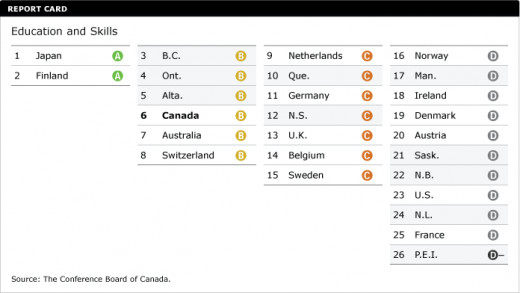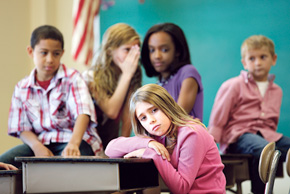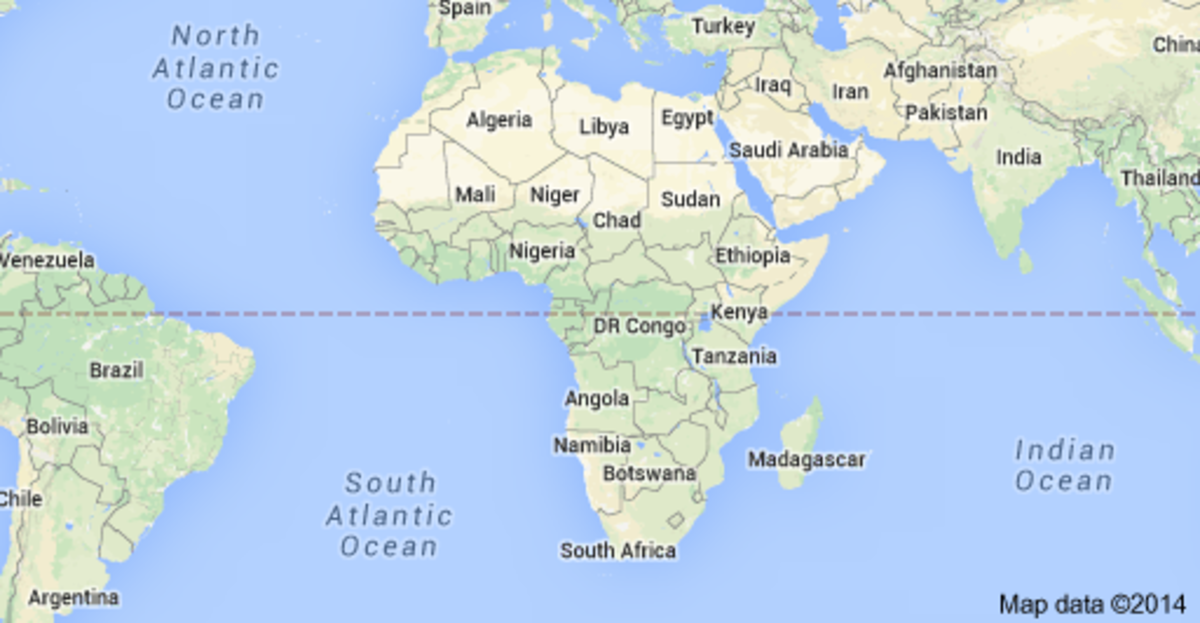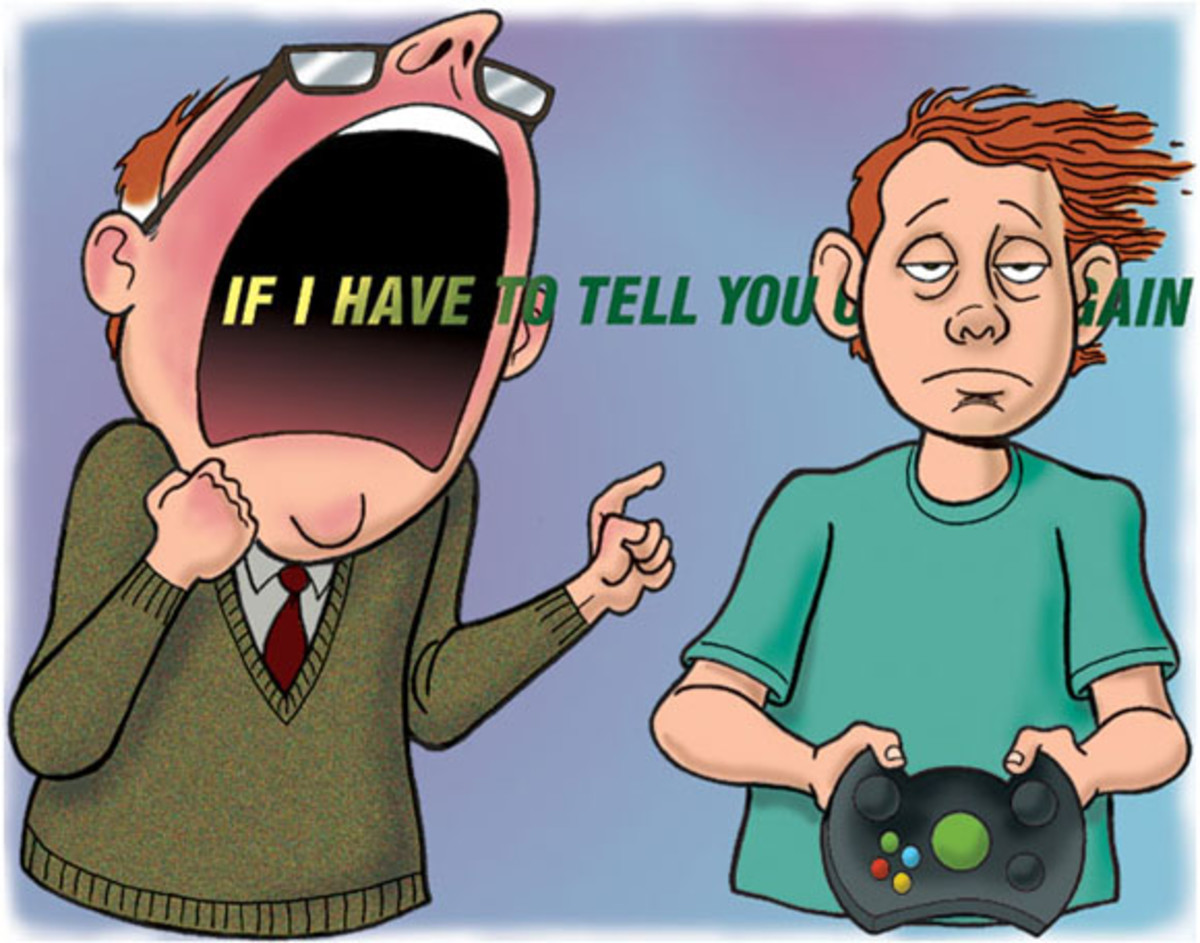Education and its Challenges in the 21st Century
Education in 2015
The #1 question parents seem to be asking is what has happened to education in Canada? According the the OECD Canada is ranked 10th in the global school rankings as of May 2015, much higher than the UK and the US. Our kids are more literate in both reading and in mathematics but it doesn't really explain the challenges it takes for students to get there. Nationally Canada is ranked high, however it varies greatly from province to province. According to the Conference Board of Canada, Manitoba is among one of the worst ranked provinces earning a below average score for competency in reading, math and science, the worst being Prince Edward Island. Top ranked provinces being British Columbia, Ontario and Alberta. Provinces are responsible for establishing and maintaining their own curriculum, standards and policies, hence the difference from one province to the next. Other factors such as socioeconomic class, location and the provinces overall economic success also play a role in this.


Student Challenges
Kids seem to have a lot more to worry about today than they did 30 years ago. Although social and demographic issues are much the same as they were in the past, something has changed in our classrooms. In Saskatchewan, they have made many changes to the curriculum in the last 10 years to help promote the ever changing environment, to better foster diversity in learning style and encourage growth. What was once a fairly standard and rigid document has ballooned into a complicated, almost unmanageable what should be resource.
Teachers are overburdened today. There is this huge push for inclusion and learning for all but the problem with that is that the precious little time a teacher has for each lesson is now taken up by what some would think as unimportant and unnecessary activities . Schools are grossly underfunded when it comes to teacher's aids and learning resources. In Regina, Saskatchewan, 25-30 kids are jammed in a classroom all ranging in learning styles and ability. Schools are getting closed and the ones left open are bursting at the seams. Small schools are being phased out one by one and the era of the small classroom is about to be no more. Funding challenges are forcing districts into this method and it's only hurting the students further.
Students are overburdened. With the sudden rise in autism, learning disabilities, ADHD and sensory disorders it's more and more difficult for students to cope in regular learning environments but they are expected to and treated as if they should be like the "normal" students. Schools try and most fail to accommodate the needs of these students but again, with the lack of funding from governments it's nearly impossible for schools to cope. As such, classroom management has become a real problem. Walking down the halls of a Regina area school the halls were blanketed with the sounds of chatter and chaos. What happened to the quiet classroom? It was appalling to think that students were expected to focus and complete work assignments in this type of environment. Imagine a student who has auditory sensitivity sitting in this class. It would be like nails on a chalkboard all day every day. What of the "above average" children? With the ever increasing gap in just reading level alone in the same classroom the students that excel are also in danger of a failed education. With the "problem" children taking up so much of a teacher's time, how are these students being challenged? Where is the motivation to excel when a grade literally means nothing anymore?
NDP deputy leader Trent Wotherspoon states, “We could and absolutely should have one of the strongest school systems in the country. But this government didn’t invest properly in students and classrooms. Whether it’s crumbling schools that aren’t getting any repair dollars, overcrowded classrooms and schools that can’t afford supports for students like anti-bullying programs, enough educational assistants or English as an additional language supports, it’s the students that lose when the government has misplaced spending priorities.”
Another huge issue facing teachers today is the lack of control he/she has in the classroom. Everything that a teacher needs to do in order to maintain order has been taken away. No longer can you keep a child after school for detention unless you have a parent's permission. No longer can you fail a student, or hold them back a grade if they aren't ready to move on. There are no consequences for bad behavior. The principal's office is an escape out of the classroom rather than a punishment. Kids are given too much freedom and teachers can do little or nothing about it. The passionate teachers that try hard usually can do ok and manage but even the best of teacher is bound to get worn down by the constant pressure from administration and parents.
"The arguments against no-zero policies are compelling. No-zero policies always encounter fierce resistance from parents and teachers, unreasonably interfere with the professional discretion of teachers, penalize students who complete all their assignments on time and fail to prepare students for life after school. These are all excellent reasons for school administrators to avoid stepping into the quagmire of no-zero policies." Michael Zwaagstra
In 2007 Kenneith Leithwood and Doris Jantzi from the Institute for Studies in Education at the University of Toronto, released a report to the Regina Public School Division about the effects of school sizes on students. "In sum, the weight of evidence in our review is tilted decidedly in favor of smaller elementary schools producing greater academic achievement on the part of their students."
How is it then that the school board did the exact opposite of this recommendation and has made school sizes unimaginably large? They also found "reduced incidence of misbehavior in smaller schools." and that "students in small schools, the results indicated, were more likely to become bullies than victims. But bullying was reduced by greater parental involvement, such involvement being more likely in small schools."
It is very clear that education is in need of a major reform, but it may already be too late for some kids.
What do you think?
Should we be failing students if they aren't passing?






